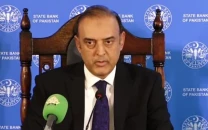Hybrid system for ministries sought
Cabinet calls for bringing talent from private sector as bureaucracy is unprepared

While expressing concern over the performance of top-level bureaucracy, cabinet members have called for introducing a hybrid system in big ministries and divisions through the induction of best talent from the private sector.
The cabinet members fretted that the bureaucracy, especially at the top level, was not geared up to meet the challenges posed by the modern-day hyperkinetic environment.
Therefore, there was a need to bring in specialists and professionals from the diaspora and private sector to come up with bold and out-of-the-box solutions to the problems being faced by the government, they said.
It was suggested that initially the hybrid system could be introduced in the larger ministries/ divisions through the induction of best talent from the private sector.
In a meeting held on January 4, a cabinet member drew attention to the lack of incentives and low salaries of senior bureaucrats compared to those working in provincial governments and the private sector, which was the main cause of better resources not serving in the federal ministries and divisions.
During discussion, it was enquired whether the Karachi Circular Railway (KCR), Main Line-1 (ML-I) and Hyderabad-Sukkur motorway projects were also included. Minister for finance and revenue clarified that these three projects had not been factored in.
Minister for planning, development and special initiatives apprised the meeting that KCR and Hyderabad-Sukkur motorway projects were at a fairly advanced stage, so whenever there was room, their guarantees should be issued.
The need to switch to accrual accounting from the cash accounting method, currently prevalent in the federal government, was highlighted by a cabinet member to give a more accurate picture of the liabilities.
The finance minister clarified that for this necessary structure had to be created first, which included the appointment of professional chief financial officers (CFOs) in the ministries/ divisions.
Sharing the anecdotal evidence, the special assistant to prime minister on national security and strategic policy planning underlined the need for identifying four to five key steps, which the government could take to attract, facilitate and retain the talent of overseas Pakistanis.
It was suggested that the Cabinet Committee on Institutional Reforms should deliberate on the issue and submit recommendations.
Special assistant to the prime minister on establishment pointed out that the system of performance agreement introduced by the government had made a positive difference in the functioning of the top bureaucracy.
Furthermore, the implementation of Directory Retirement Rules would help in weeding out the deadwood from the civil service.
The prime minister directed the special assistant to update him on the progress made by the ministries/ divisions on the implementation of Directory Retirement Rules.
Contingent liabilities
The Finance Division apprised the federal cabinet that the federal government was required to lay before the National Assembly the “Statement of Contingent Liabilities” as part of the Annual Budget Statement under Section 4, sub-section 3(a) of the Public Finance Management Act 2019.
Section 2(h) of the Act defines contingent liability as financial liability that may arise or come into being if one or more events occur.
In June 2021, the federal government laid before the National Assembly the Statement of Contingent Liabilities along with the Annual Budget Statement for fiscal year 2021-22.
It provided information about the total outstanding government guarantees, domestic and external, along with the sector-wise share.
Subsequent to the staff-level agreement reached after the fifth review under the Extended Fund Facility with the International Monetary Fund (IMF), a list of guarantees that the federal government expected to issue during the remainder of fiscal year 2021-22 had to be laid before the National Assembly and published. The list would be treated as a ceiling for this period.
It was told that since the Finance Supplementary Bill was being laid in the National Assembly to meet the agreed prior action under the IMF’s sixth review, it was proposed that the additional “Statement of Contingent Liabilities” may also be laid as agreed with the IMF.
This proposal required approval of the federal cabinet as per Rule 16(C) of the Rules of Business 1973. The cabinet considered the summary titled “Publication of Statement of Contingent Liabilities with Finance Supplementary Bill”, submitted by the Finance Division, and approved the proposal.
Published in The Express Tribune, January 15th, 2022.
Like Business on Facebook, follow @TribuneBiz on Twitter to stay informed and join in the conversation.



















COMMENTS
Comments are moderated and generally will be posted if they are on-topic and not abusive.
For more information, please see our Comments FAQ